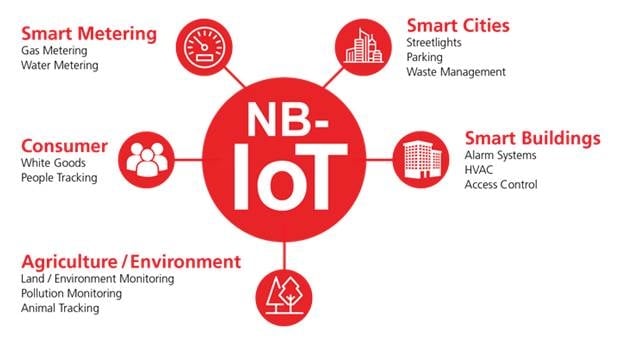Vodafone announced that it would launch NB-IoT, a low power network aimed at devices like smart meters, in four European markets (Germany, Ireland, the Netherlands and Spain) in Q1 2017. Vodafone also committed to rolling out the network standard across all of its countries by 2020.
The Operator also claimed it would be the first operator globally to launch low power wide area (LPWA) networks based on the newly minted 3GPP standard.
The NB-IoT rollout for Vodafone will involve a simple software upgrade to its existing 4G base stations. This means that the rollout will be rapid and will deliver nationwide coverage almost immediately.
Tom Rebbeck's, Research Director at Analysys Mason, view on this announcement is that:
It is a smart move that will push the entire NB-IoT ‘ecosystem’. By committing to this date, Vodafone has sent a strong message to its competitors, but also makes a strong commitment to other players in the value chain, from chipset designers to application developers. This announcement will encourage others to invest in NB-IoT, which will help all parts of the ecosystem.
It is an aggressive timetable but probably not unrealistic. For most of its networks, Vodafone has said that the rollout will require just a software upgrade (i.e. no site visit is required). From its trials in Spain and elsewhere, Vodafone is also clearly satisfied with the performance of the technology. The issues it faces now are probably as much commercial (e.g. agreeing the licencing terms) as they are technical.
Vodafone will want its partners, and not just its own networks, to launch NB-IoT. Part of Vodafone’s success in winning major IoT contracts (e.g. GM, VW) using traditional cellular has been due to it offering seamless regional coverage. It will want to do the same with NB-IoT but this will depend on partner networks also investing in NB-IoT.
Do not rule out LoRa. The news from Vodafone puts pressure on technologies that compete with NB-IoT, such as LoRa, SIGFOX and Ingenu. LoRa in particular is looking robust though. In recent weeks, Softbank in Japan and Comcast in the US have announced plans for LoRa networks, and others with LoRa networks (e.g. Orange in France, Tata Communications in India) are aggressively exploring its potential. To give a sense of scale of LoRa now has the support of mobile operators with approaching 200 million cellular subscribers.




















